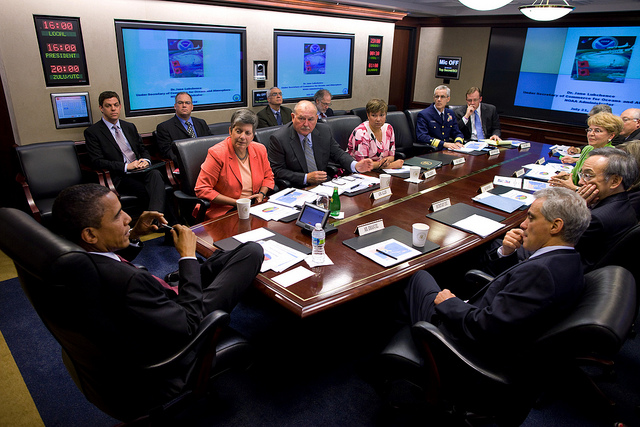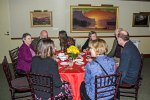
Dr. Geraldine (Geri) Richmond, a renowned professor of chemistry at the University of Oregon, is being honored as the 2019 winner of the Linus Pauling Legacy Award, sponsored by the Oregon State University Libraries and Press. Dr. Richmond is a Presidential Chair in Science at UO in addition to being a member of the Chemistry faculty.
As part of the celebration marking the award, Richmond will deliver a free public lecture on Wednesday, May 22nd at 7:00 p.m. at OSU’s Valley Library in the fourth floor Rotunda. The lecture’s title is “The Importance of Global Scientific Engagement.”
The Pauling Legacy Award recognizes outstanding achievement in a subject once of interest to Linus Pauling. Richmond is the tenth winner of the prestigious award; four past recipients have been Nobel Prize winners. Each awardee has been honored with a framed certificate, engraved medallion and $2,000 honorarium.

Richmond’s research using laser spectroscopy and computational methods focuses on understanding environmentally and technologically important processes that occur at liquid surfaces. In the words of Dr. Richard van Breemen, Director of the Linus Pauling Institute and member of the Pauling Legacy Award nominating committee, Richmond’s work “has applications in energy production, environmental remediation and atmospheric chemistry that can impact human health.”
Another member of the nominating committee, Horning Professor of the Humanities Emerita Dr. Mary Jo Nye, noted that Richmond’s “chemical research on molecular structure and atmospheric chemistry is award-winning, as is her role in teaching and encouraging women in the sciences, complemented by her dedicated professional service.”
Richmond herself recalled that
I was speechless – which is rare for me – when I got the call and was told that I had won the Linus Pauling Legacy Award. I kept saying, ‘Wait, can you say that again?’ Linus Pauling is really my Oregon role model, with his amazing contributions to both science and humanity. I am truly honored and look forward to coming up to Oregon State for the award ceremony and seeing his collection at the library.

A member of the National Academy of Sciences and the American Academy of Arts and Sciences, Dr. Richmond has served in leadership roles on many international, national and state governing and advisory boards. She is currently the U.S. Science Envoy to the Lower Mekong River Countries, and is likewise serving as Secretary of the American Academy of Arts and Sciences. She is recent past president of the American Association for the Advancement of Science and is the incoming president of the Sigma Xi Scientific Honor Society. Richmond is also the founding director of COACh, a grass-roots organization formed in 1998 that has helped more than 20,000 women scientists and engineers to advance their careers worldwide.
Richmond will add the Pauling Legacy Award to a lengthy and impressive list of previous decorations. Among them are the 2018 Priestley Medal from the American Chemical Society (ACS) and the National Medal of Science (2013) – both awards previously bestowed upon Pauling as well. She has also received the Joel H. Hildebrand Award in the Theoretical and Experimental Studies of Liquids (2011, ACS), and the Speirs Medal from the Royal Society of Chemistry (2004). Awards for her education, outreach and science capacity-building efforts include the ACS Charles L. Parsons Award for Outstanding Public Service (2013), the ACS Award for Encouraging Women in the Chemical Sciences (2005), and the Presidential Award for Excellence in Science, Mathematics and Engineering Mentoring (1997).

Filed under: Site and Department News | Tagged: Geraldine Richmond, Linus Pauling Legacy Award | Leave a comment »

























































